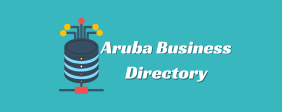Emails are the lifeblood of modern communication. especially in the professional world. But a generic. one-size-fits-all approach to email writing simply won’t cut it. The tone. content. and even formatting of your emails should be tailored to the specific industry and role you occupy. Understanding these nuances ensures your messages are not just received. but also understood and appreciated. ultimately helping you build relationships. close deals. and advance your career. This guide will provide insights on how to craft effective emails that resonate with different industry roles.
Tailoring Your Tone: From Corporate Formalities to Creative Flair
The first crucial aspect is tone. In industries like finance. law. or government. a formal and professional tone is paramount. Emails should be concise. well-structured. and free of slang or colloquialisms. Address recipients with appropriate titles (Mr.. Ms.. Dr.. etc.) and maintain a respectful and deferential approach. Subject lines should be clear and specific. and the body of the email should adhere to standard industry email list business writing conventions. Conversely. in creative fields like marketing. design. or tech startups. you might have more leeway to be informal and personable. A slightly more relaxed tone can help build rapport and foster a sense of collaboration. Don’t be afraid to inject some personality into your emails. but always ensure it’s appropriate for the specific recipient and the context of the communication. Remember to always proofread carefully. regardless of the industry. to avoid any potentially damaging errors.
Content is King: Focusing on Relevance and Clarity
The content of your email is where you truly demonstrate your understanding of the industry and role. For sales professionals. emails should be highly targeted. focusing on the client’s needs and offering solutions. Include a clear call to action. and be sure to follow up promptly. For project managers. emails should be informative and organized. providing updates on project progress. outlining tasks. and clearly assigning responsibilities. Use bullet points. numbered lists. and other formatting tools to make information easy to digest. In technical roles like engineering or software development. emails should be precise and detail-oriented. often including code snippets. error messages. or specifications. Ensure real estate b2b email lists for bd developers that all technical terms are clearly defined. and consider using diagrams or attachments to illustrate complex concepts. Regardless of your role. always prioritize clarity and conciseness. Get to the point quickly. avoid jargon whenever possible. and make sure your message is easy to understand.
Formatting and Beyond: The Importance of Professionalism
Beyond the content. the format of your email plays a crucial role in its impact. Always use a professional email signature that includes your name. title. company. contact information. and relevant links. This adds credibility and makes it easy for recipients to reach you. Use a clear and readable font. and avoid excessive use of qatar numbers colors or graphics. Keep the subject line concise and informative. Before sending any email. always proofread it carefully for spelling and grammatical errors. Even experienced email writers sometimes overlook minor errors. so it’s a great idea to have someone else read it through. Remember to be mindful of your recipients’ time and only include information that is relevant. By paying attention to these details. you can present yourself as a professional. attentive. and detail-oriented individual. which is essential for success in any industry.
